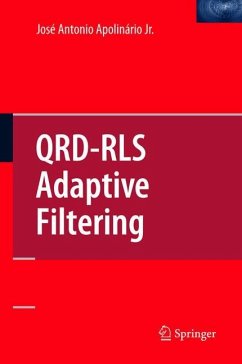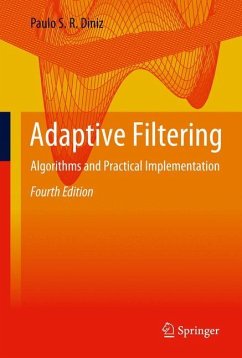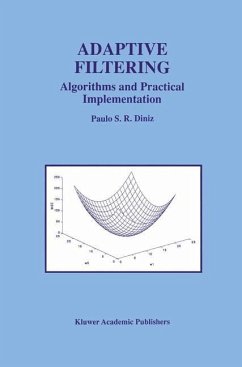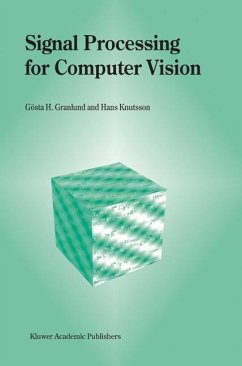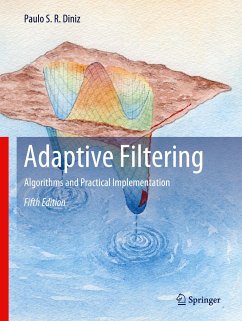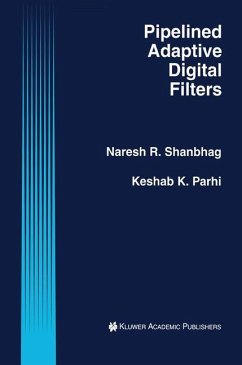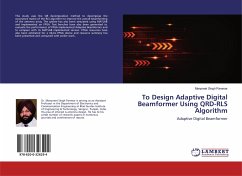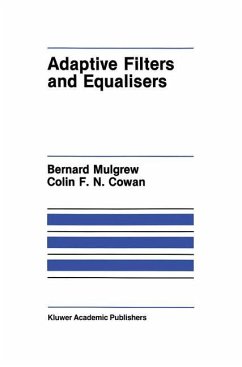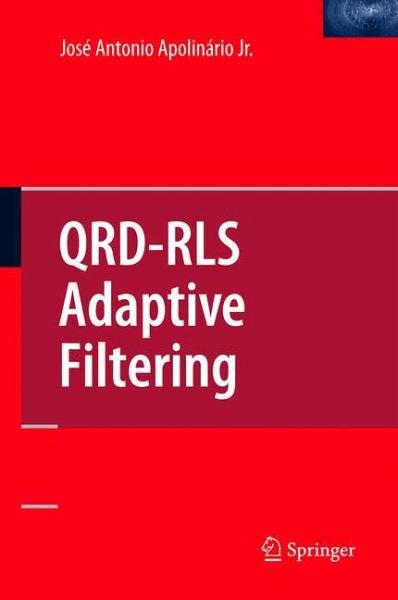
QRD-RLS Adaptive Filtering
Versandkostenfrei!
Versandfertig in 6-10 Tagen
113,99 €
inkl. MwSt.

PAYBACK Punkte
57 °P sammeln!
This book provides tools and knowledge in a simple way so that the reader is able to implement a particular QRD-RLS algorithm tailored for the application at hand. The book comprehensively compiles the research of more than a decade into a single publication.
I feel very honoured to have been asked to write a brief foreword for this book on QRD-RLS Adaptive Filtering-asubjectwhichhas been close to my heart for many years. The book is well written and very timely - I look forward personally to seeing it in print. The editor is to be congratulated on assembling such a highly esteemed team of contributing authors able to span the broad range of topics and concepts which underpin this subject. In many respects, and for reasons well expounded by the authors, the LMS al- rithm has reigned supreme since its inception, as the algorithm of choice for prac- cal applications of adaptive ltering. However, as a result of the relentless advances in electronic technology, the demand for stable and ef cient RLS algorithms is growing rapidly - not just because the higher computational load is no longer such a serious barrier, but also because the technological pull has grown much stronger in the modern commercial world of 3G mobile communications, cognitive radio, high speed imagery, and so on.





